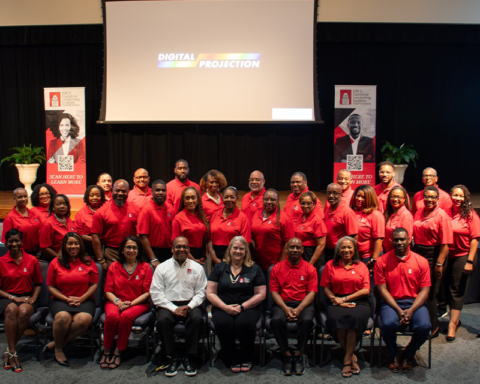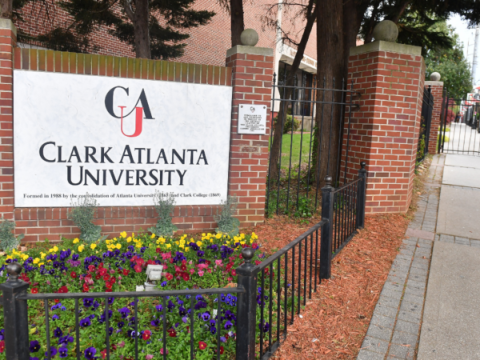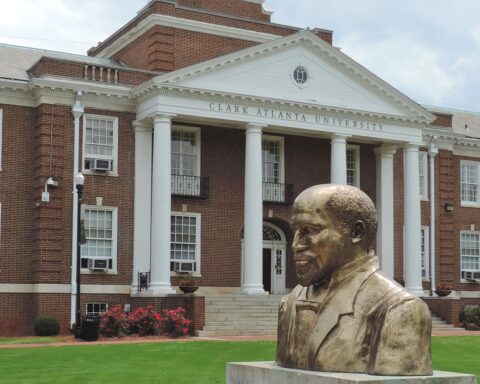Courtesy of Clark Atlanta University
The annual Emerging Scholars edition was published on Jan. 19, 2023, and profiled 15 scholars from throughout the country who are making their mark in the academy through teaching, research and service. Currie is the only scholar from an HBCU, as well as the only one from Georgia, to make the list.
Diverse, which first published its Emerging Scholars edition in 2001, selects honorees from a pool of candidates recommended by various scholars, department chairs, university public information officers and others. Scholars are selected based on research, educational background, publishing record, teaching record, competitiveness in field of study and uniqueness of field of study.
Currie teaches social work practice, policy and Critical Race Theory. His research interests include the application of social justice to clinical practice, prison reform/abolitionism, environmental and socially engineered trauma with an emphasis in communities of color, and the intersection of Black men, mental health and infectious disease.
“In my current position at WYMJSSW, I have an awesome opportunity to merge my knowledge in CRT, trauma theory, queer studies and empowerment practice with the school’s Afrocentric perspectives,” stated Currie in the School’s March 2022 edition of Research Bulletin.
“In my courses, I embed the values and practice techniques of the Afrocentric perspective and critical race theory also known in academic circles as critical race students (CRS), in the spirit of furthering decolonization of both our people and our social work practices.”
Dr. Jenny L. Jones, dean of Whitney M. Young Jr. School of Social Work, said Currie is both a phenomenal scholar and clinician whose work uplifts the mission of the School.
“His focus on social justice to include racial inequality aligns with the School’s Afrocentic perspective, which encompasses the intersectionality of race and other societal factors such as gender, ethnicity, social class, ability status and sexual orientation,” she said. “We are very proud of his accomplishments.”





